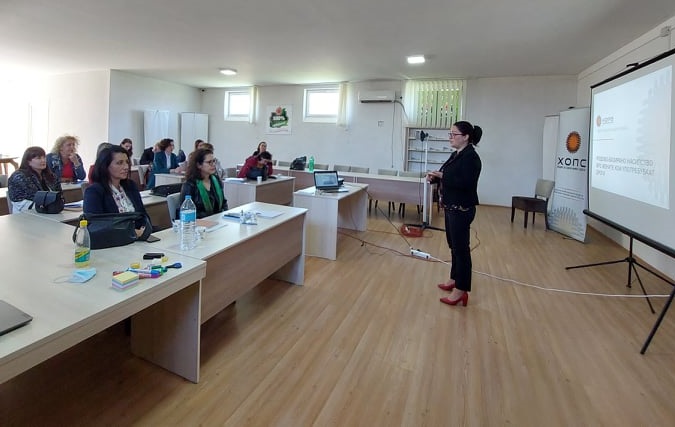With the International Campaign for the Elimination of Violence Against Women UNiTE, a UN
initiative of 16 days of activism, the Women and Harm Reduction International Network (WHRIN)
and Drug Policy Network South East Europe (DPNSEE), with campaign partners YouthRISE,
EuroNPUD and EWNA call for an end to all forms of violence against women and gender diverse
people who use drugs. The EVAWUD campaign highlights the need to end violence against women
and gender diverse people who use drugs and improve drug policies from a feminist, human rights
and harm reduction perspective.

Women and gender diverse people who use drugs are subject to extreme levels and a wide range of violence due to patriarchal norms combined with punitive prohibition of some drugs. State-driven stigma, criminalization, harmful gender norms, and corruption drive substantive health and safety harms. These act as barriers for women and gender diverse people who use drugs accessing critical harm reduction and gender-based violence (GBV) services.
Women and gender diverse people who use drugs experience GBV at up to 25 times the rate experienced by women in the general public. This violence includes, (but is not limited to) extra judicial killing, capital punishment, forced and coerced sterilisation and abortion, rape, sexual harassment, loss of child custody, bashings, imprisonment for personal possession or use, penalisation for drug use in pregnancy, along with other types of gendered violations, stigma and discrimination.
 Woman and gender diverse people who use drugs around the world can face arbitrary detention, extortion, police violence, torture and ill-treatment, with well over a third of women in prison for drug offences and with the incarceration of women for drug offences spiking globally by 53% since 2000.
Woman and gender diverse people who use drugs around the world can face arbitrary detention, extortion, police violence, torture and ill-treatment, with well over a third of women in prison for drug offences and with the incarceration of women for drug offences spiking globally by 53% since 2000.
Due to the so-called “war on drugs”, survivors have little recourse and often no support, particularly in cases of violence from police, prison guards and compulsory ‘treatment’ centre staff. The experiences of violence against women who use drugs are even more extreme for those facing intersecting oppressions such as women of colour, sex workers, or trans women. Additionally, young people face more barriers to accessing essential health and harm reduction services due to policies and laws on age restrictions, affecting young women and gender diverse people.
 WHRIN and DPNSEE and partners note that, by collaborating with groups of women and gender diverse people who use drugs and documenting peer led actions and services, the appropriate responses to these inequities and violations are clear.
WHRIN and DPNSEE and partners note that, by collaborating with groups of women and gender diverse people who use drugs and documenting peer led actions and services, the appropriate responses to these inequities and violations are clear.
Meaningful community involvement must feature as the cornerstone to all good practice responses in developing GBV services. As the criminalisation of drug use stands as a primary barrier between women and gender diverse people who use drugs and attainment of human rights including the right to safety, access to harm reduction and other essential health services.
Decriminalisation which removes all sanctions and punishment, including coerced or court-imposed treatment programs, for all people who use drugs, and all types of drugs is also imperative. Properly implemented decriminalisation will reduce the stigma and violence associated with the “war on drugs”.
Expansion of harm reduction and inclusion of violence prevention and mitigation, and gender sensitive, affirming and age-appropriate support services are also critical. It is also noted that sexual and reproductive health is now promoted as an additional essential service that should be incorporated within the harm reduction suite of services for people who use drugs, and that best practice service delivery integrates comprehensive GBV services.
DPNSEE and WHRIN, EuroNPUD, YouthRISE and ENWA call for an end to the “war on drugs”, to end this violence against women and gender diverse people who use drugs. Legislation and legal principles, procedures, policies, programmes and practices relating to criminal justice must be reviewed to determine if they are adequate to prevent and eliminate violence against women and gender diverse people who use drugs. If they are found to have a negative impact, they must be modified in order to ensure that people who use drugs enjoy fair and equal treatment.
Please join us in ensuring adequate resources and legislative frameworks uphold the safety and human rights of women and gender diverse people who use drugs.
 To access the Handbook, follow this link>>>.
To access the Handbook, follow this link>>>.



 Woman and gender diverse people who use drugs around the world can face arbitrary detention, extortion, police violence, torture and ill-treatment, with well over a third of women in prison for drug offences and with the incarceration of women for drug offences spiking globally by 53% since 2000.
Woman and gender diverse people who use drugs around the world can face arbitrary detention, extortion, police violence, torture and ill-treatment, with well over a third of women in prison for drug offences and with the incarceration of women for drug offences spiking globally by 53% since 2000. WHRIN and DPNSEE and partners note that, by collaborating with groups of women and gender diverse people who use drugs and documenting peer led actions and services, the appropriate responses to these inequities and violations are clear.
WHRIN and DPNSEE and partners note that, by collaborating with groups of women and gender diverse people who use drugs and documenting peer led actions and services, the appropriate responses to these inequities and violations are clear.


 The International Network of People who use Drugs (
The International Network of People who use Drugs ( To read full and download the tool,
To read full and download the tool,